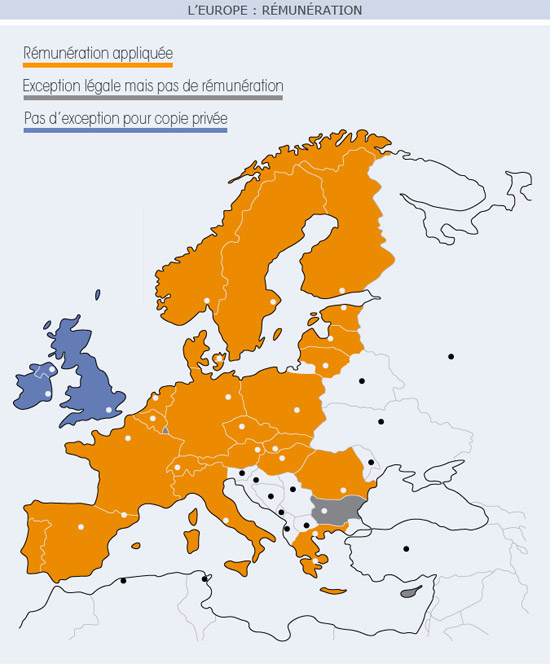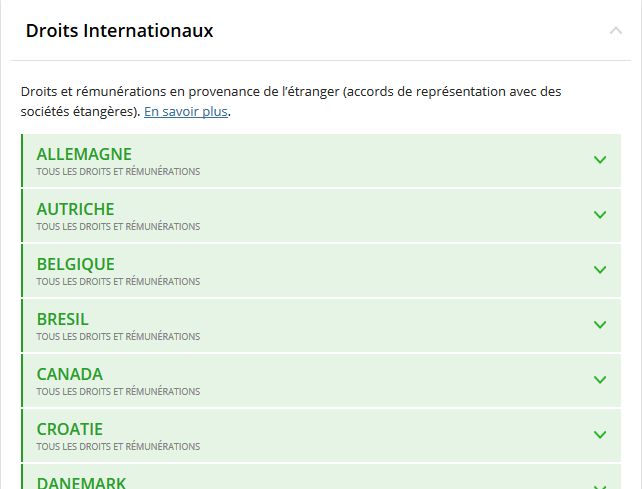What remuneration is concerned?
In addition to private copy levies, Adami collects, calculates and pays additional remuneration (salaries and other) due to performers in application of collective agreements and management contracts signed with audiovisual producers or broadcasters.
The agreement of 7 June 1990 known as the “Cinema Agreement”:
This agreement applies to all film producers who have hired artists and whose contracts were signed after 1 December 1990. This agreement provides for the payment to Adami of an additional remuneration for performers, set at 2% of the net operating revenue received by the producer after amortisation of the cost of the film.
The agreement of 11 July 2012 known as the L 212-7 agreement:
This agreement concerns actors who participated in films released in cinemas from 1961 to 1990. It sets the remuneration of actors for the video and video-on-demand exploitation of amortised films. All actors benefit from 3.15% of the receipts for the past and 4% of the receipts as from 1 January 2012.
Note: This latter remuneration is in the category of non-commercial income (Bénefice Non Commerciaux). Find out more about the taxation of rights paid by Adami
You are an actor and the works in which you participated are concerned by the L 212-7 agreement? You have not received the settlement agreement by mail? Contact us on 01 44 63 10 00 (choice 1).
The collective agreement and TV agreements
The TV collective agreement is a text that governs the conditions of employment of artists hired for a television programme. In particular, it provides for additional remuneration to the artists’ initial fees. This additional remuneration is in principle calculated by applying a percentage to the net income from the secondary exploitation of the programmes.
Some producers have mandated us in this context to manage and pay the additional remuneration due to performers.
In addition, other agreements managed by us complement this agreement:
The TV5 agreement: the artist is remunerated for any broadcast on the TV5 channel
Cable distribution agreements: the artist is paid for cable broadcasts abroad: Belgium, Holland, Germany, etc.
Broadcast agreement: The artist is remunerated for rebroadcasts on the 7 terrestrial channels
The video on demand agreement * : The artist is remunerated for VOD exploitations on the internet, mobile phones, etc.
* To be distinguished from Catch-up TV or catch-up television within 7 days of broadcast or rebroadcast: these latter uses are included in the commitment salary and no additional remuneration is therefore paid in this respect.
The dubbing agreement (known as the DAD-R agreement)
This agreement signed in January 2005 aims to compensate artists who participated in dubbing sessions before 1986 for exploitations carried out after 2004. As such, the actors receive compensation.
These sums are not taxable and are not subject to social security charges.



